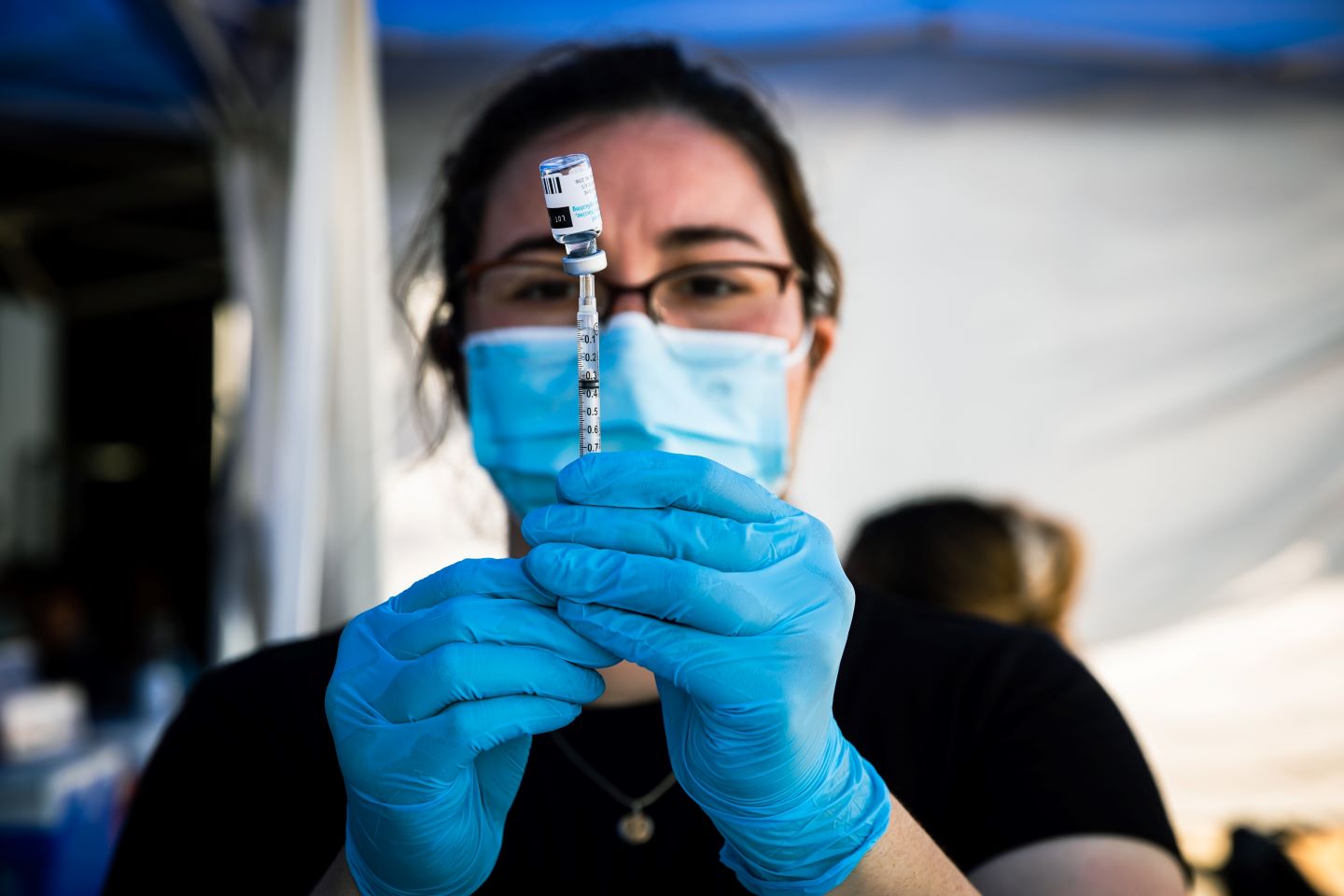A recent study carried out at Charité Universitätsmedizin Berlin and published in The Lancet Infectious Diseases has shown that one dose of Bavarian Nordic’s Jynneos (smallpox and mpox vaccine, live, non-replicating) was overall 58% effective at preventing mpox infection. This combined prospective and retrospective study recruited more than 6,000 men who have sex with men and transgender people aged 18 years and older, and reported 84% effectiveness in individuals without HIV, but only 35% effectiveness in those with HIV. This variance highlights the ongoing unmet need surrounding mpox prevention for some of the most vulnerable, at-risk populations.
Mpox is a viral illness that is spread through close contact with another infected individual, contaminated objects, or infected animals. Symptoms can include a blistering rash, fever, muscle aches, sore throat, and swollen lymph nodes. While mpox symptoms are often mild, immunocompromised patients such as those with uncontrolled HIV are at a greater risk of severe disease, hospitalisation, and death from this infection.
According to the US Centers for Disease Control and Prevention (CDC), the ongoing Clade II 2022 mpox outbreak has been responsible for over 100,000 infections among 122 countries to date across North America, South America, Africa, Europe, Asia, and Australia. Clade II mpox has a greater than 99% survival rate. Conversely, clade I is more likely to cause severe illness and death, particularly among immunocompromised individuals. A Clade I outbreak has been ongoing in Central and Eastern Africa since 2024 and has been responsible for over 21,000 infections to date.
Jynneos, which is also marketed under the brand name Imvanex, is approved in the US and Canada as a two-dose vaccine for the prevention of mpox and smallpox in high-risk individuals aged 18 years and older, and in Europe for high-risk individuals ages 12 years and older. The reduced effectiveness of Jynneos in HIV-positive patients is likely attributable to a reduced T-cell response following vaccination in comparison to HIV-negative individuals, according to the study researchers. Ensuring that patients receive the full two-dose vaccination regimen is therefore particularly important for those with HIV.
According to GlobalData, there are currently only two other vaccines approved for the prevention of mpox: KM Biologics’ mpox LC16m8 vaccine and Emergent BioSolutions’ ACAM2000. The LC16m8 vaccine is safe and effective in people with well-controlled HIV. Furthermore, there are only three other mpox vaccines currently in clinical development: the LC16m8 mpox vaccine being investigated by the National University of Colombia, BioNTech’s BNT-166a, and Moderna’s mRNA-1769. Of these, the Phase III trial for LC16m8 includes a study cohort of individuals with stable HIV infection.
In the Jynneos study, more than 3,600 participants received two doses of the mpox vaccine to analyze vaccine safety. Local reactions occurred in 70% of individuals after the first dose and 57% of individuals after the second dose. Systemic reactions occurred in 22% of individuals after the first dose and 18% of individuals after the second dose. Severe local and systemic reactions were rare. Reactogenicity was reduced in individuals with HIV, which is unsurprising given the reduced effectiveness of the vaccine in this population. Local reactions occurred in 62% of individuals with HIV after the first dose and 52% of individuals with HIV after the second dose, compared with 74% and 59%, respectively, in individuals without HIV. Systemic reactions occurred in 20% of individuals with HIV after the first dose and 15% of individuals with HIV after the second dose, compared with 24% and 19%, respectively, in individuals without HIV.

US Tariffs are shifting - will you react or anticipate?
Don’t let policy changes catch you off guard. Stay proactive with real-time data and expert analysis.
By GlobalDataThis recent safety and effectiveness data regarding mpox vaccination with Jynneos is important and timely given the ongoing global outbreak. Unfortunately, there are still clear unmet needs for more research on mpox in patients with HIV and increased, effective vaccination options for this at-risk population.






